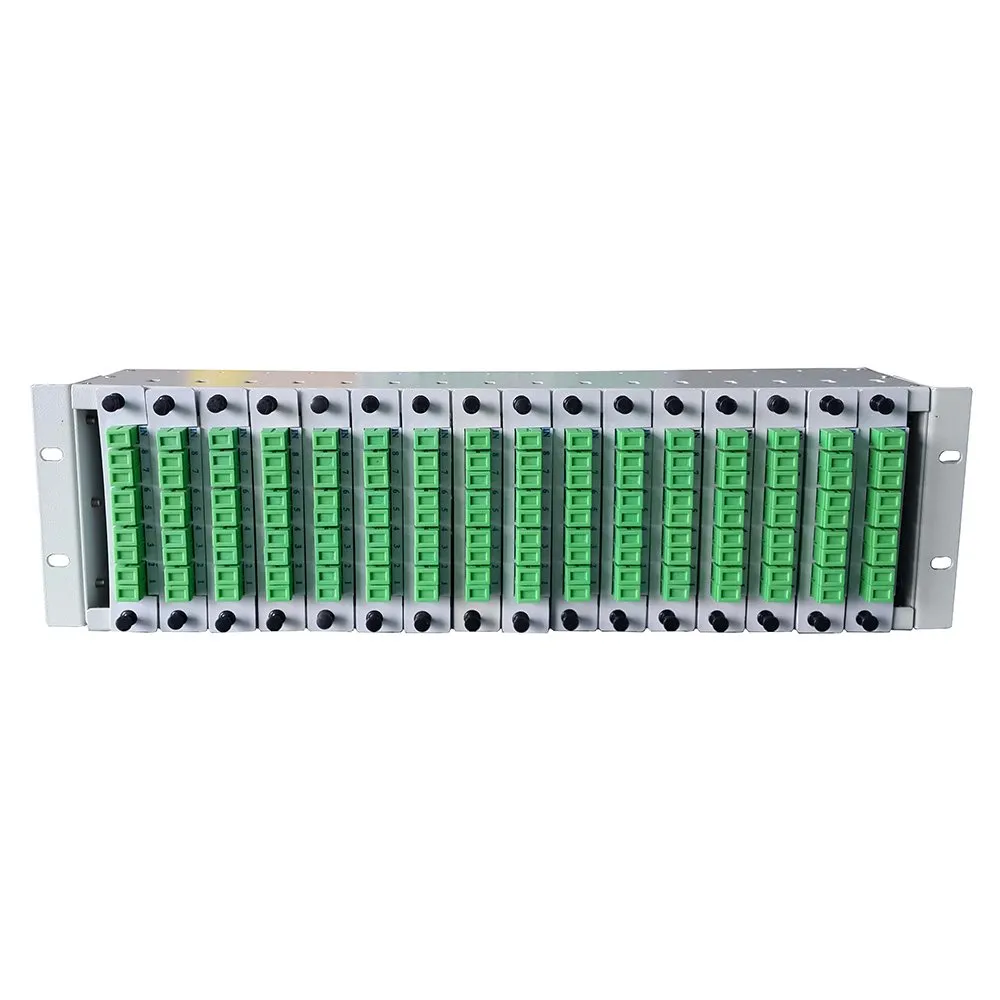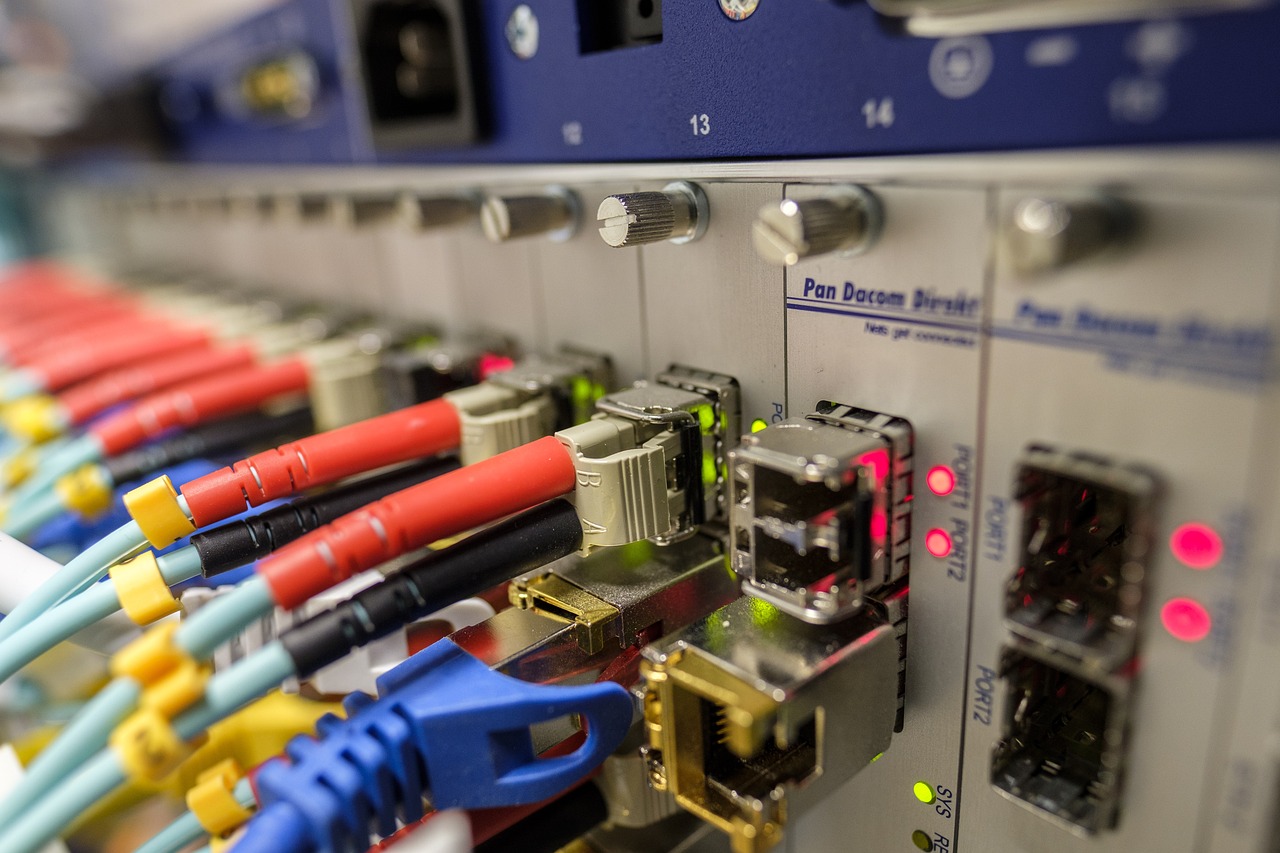Introducing 19inch 3U 128 Ports SC Modular Sliding Patch Panel with Rubber Fiber Grommets

Unpacking the Basics
What is a Patch Panel?
Definition and Basic Use
A patch panel is a crucial component in networking that serves as a centralized point for organizing and connecting different network cables. It typically consists of multiple ports where network cables can be terminated, providing an organized and structured way to manage cable connections within a network infrastructure.
Importance in Network Infrastructure
Patch panels play a vital role in maintaining an efficient and well-organized network infrastructure. They facilitate easy identification, troubleshooting, and reconfiguration of network connections. Additionally, they help minimize cable clutter and reduce the risk of cable damage, contributing to overall system reliability and performance.
Features of the 19inch 3U Model
Size and Compatibility
The 19inch 3U patch panel is designed to fit into standard 19-inch racks commonly used in data centers and telecommunication environments. Its 3U height ensures compatibility with various rack configurations, making it a versatile choice for different networking setups.
SC Connectors Explained
This model features SC connectors, which are widely used in fiber optic networks due to their reliable performance and ease of installation. SC connectors offer low insertion loss and high precision alignment, making them suitable for high-speed data transmission applications.
Sliding Patch Panel: A Closer Look
The 19inch 3U sliding patch panel introduces an innovative sliding mechanism that enhances its functionality and usability within network infrastructure. Let's delve into the distinct benefits of this sliding design and explore the seamless installation and operation process.
Benefits of the Sliding Mechanism
The incorporation of a sliding mechanism in the patch panel offers significant advantages for network maintenance and management.
Easy Access and Maintenance
The sliding feature allows effortless access to the rear end of the patch panel, simplifying cable management, inspection, and maintenance tasks. This accessibility streamlines troubleshooting processes, enabling technicians to swiftly identify and address connectivity issues without disrupting adjacent cables or components.
Space Optimization in Racks
By implementing a sliding design, the patch panel optimizes space utilization within racks. The ability to slide out the unit provides ample room for maneuvering during installation and maintenance procedures. This space-saving attribute is particularly beneficial in densely populated rack environments, where efficient use of space is paramount for maintaining an organized and accessible network infrastructure.
Installation and Operation
Navigating through the installation and operation of the sliding patch panel is straightforward, ensuring a user-friendly experience for network administrators.
Step-by-Step Guide
Begin by aligning the patch panel with the designated slots within the rack.
Gently slide the unit into position, ensuring a secure fit.
Connect the network cables to their respective ports on the front end of the patch panel.
Utilize cable management accessories to organize and secure cables effectively.
To access rear connections or perform maintenance, smoothly slide out the patch panel as needed.
Tips for Smooth Usage
Prioritize regular inspections to identify any signs of wear or damage to ensure optimal performance.
Exercise caution when sliding out the unit to avoid strain on connected cables or components.
Implement proper cable management techniques to maintain a tidy and organized setup within the patch panel.
Enhancements with Rubber Fiber Grommets and Removable Front Pane
The integration of Rubber Fiber Grommets and a Removable Front Pane introduces valuable enhancements to the functionality and maintenance of the patch panel, further optimizing its performance within network infrastructure.
Role of Rubber Fiber Grommets
Protection and Durability
The Rubber Fiber Grommets serve as protective elements, safeguarding the fiber cables against potential damage from sharp edges or excessive bending. By providing a cushioning effect, they mitigate the risk of cable wear and tear, ensuring prolonged durability and reliability of the network connections.
Cable Management and Organization
Incorporating Rubber Fiber Grommets contributes to efficient cable management by securely holding the fiber cables in place. This organized arrangement minimizes cable entanglement and maintains proper cable bend radius, promoting optimal signal transmission while simplifying future maintenance tasks.
Advantages of a Removable Front Pane
Customization and Flexibility
The inclusion of a Removable Front Pane offers customization options, allowing for tailored configurations based on specific networking requirements. This feature enables swift access to the interior components for adjustments or modifications, ensuring adaptability to evolving network setups without disrupting existing connections.
Simplified Troubleshooting and Upgrades
With a Removable Front Pane, troubleshooting procedures are streamlined as it grants direct access to the internal components for diagnostic purposes. This accessibility facilitates efficient identification of faulty connections or components, expediting troubleshooting processes. Additionally, it simplifies upgrade initiatives by providing convenient entry points for integrating new modules or enhancing existing configurations.
See Also
Essential Characteristics of 144 Cores, 1U, 19” MPO-LC, OM4 Multimode Fiber Optic Patch Panel
Investigating the Attributes of a Typical 19 Inch Fiber Optical Distribution Frame
2.0mm SC/UPC 62.5/125um Multimode Duplex Fiber Optical Patch Cable
Top 4 Offers on LC UPC to SC APC Fiber Optic Patch Cables for Indoor Armored Use


